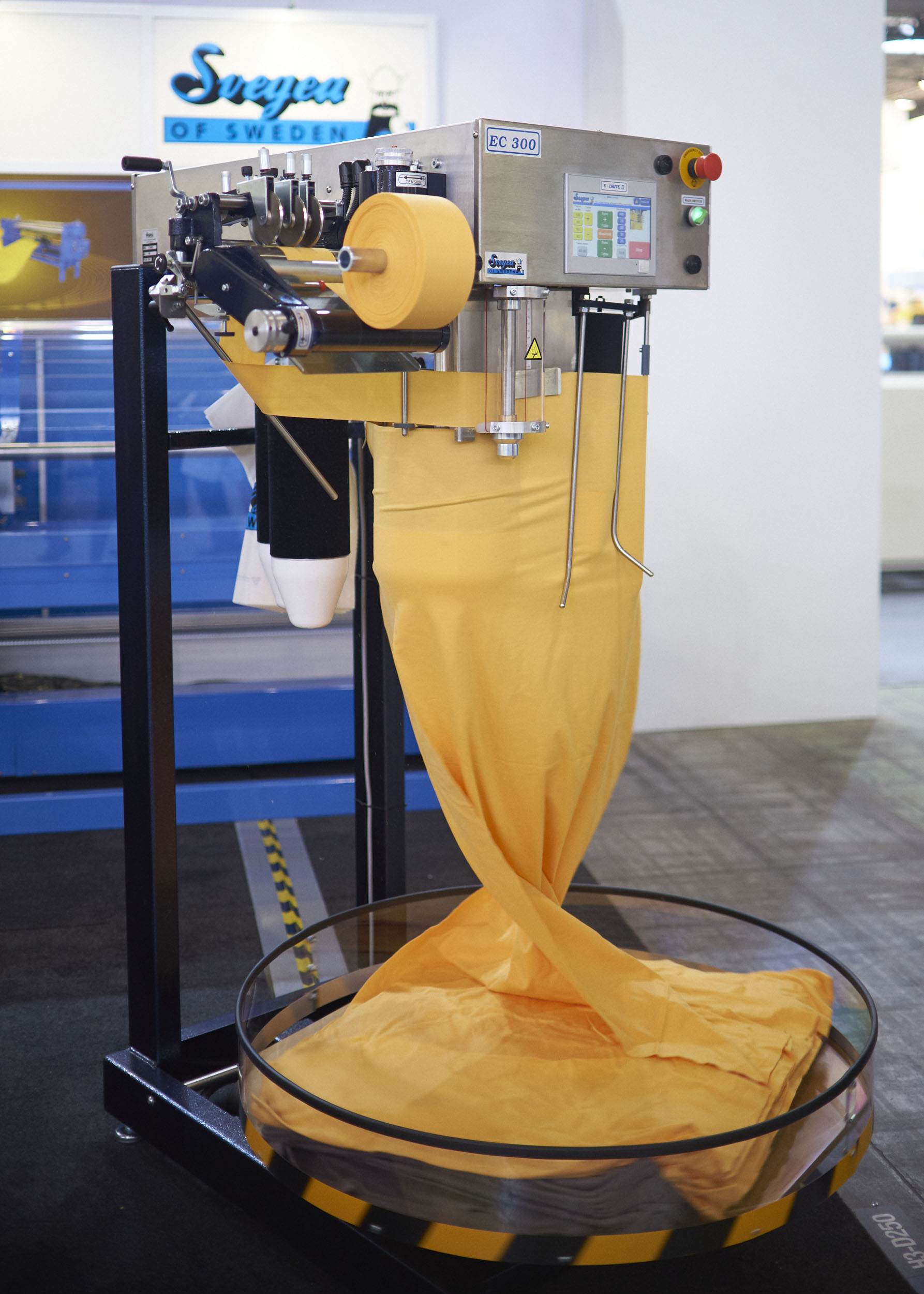Nearshoring and automation the focus for textiles machinery makers

At the upcoming Texprocess, Techtextil and Heimtextil shows – all taking place in Frankfurt between June 21 and 24 – members of TMAS, the Swedish Textile Machinery Association, will be showcasing a range of solutions aligning with the growing trend for more localised and automated textile manufacturing.
Digitalisation and the push for more sustainable, shorter and less expensive supply chains are making manufacturing in high-cost countries within Europe more attractive.
At Texprocess, Eton Systems will be unveiling its latest Ingenious software solution which enhances the company’s Opta Unit Production System (UPS) introduced in 2021.
Eton’s managing director Jerker Krabbe said: “Our automated technology has already had a great impact on the productivity of thousands of garment production lines. Our systems help producers to reduce repetitive manual tasks and increase efficiency, which evens out some of the differences between production in high and low-cost countries, making reshoring a feasible option.”
Imogo, meanwhile, recently installed an industrial scale dyeing system in Sweden. The Dye-Max spray dyeing line has the potential to slash the use of fresh water, wastewater, energy and chemicals by as much as 90% compared with conventional jet dyeing systems, according to the company, and can apply a range of fabric pre-treatments and finishing processes.
Imogo founder Per Stenflo said: “Here in Scandinavia, we are currently seeing an explosion of companies developing sustainable new cellulosic fibres – many from waste clothing – but a problem is that all of the environmental benefits they deliver can potentially be lost in the further processing, and especially in conventional dyeing.
“The Dye-Max system positively addresses this, but interest in it has not just been confined to Europe. We are seeing a lot of activity in Turkey – largely as a near-shore partner to European brands – but also in Bangladesh.”
Localised textile production is also booming in the US, where Coloreel has recently secured multiple orders for its instant thread colouration technology via its US partner Hirsch.
“Coloreel technology enables the high-quality and instant colouring of a textile thread while it is actually being used in production and can be paired with any existing embroidery machine without modification, while also making it possible to produce gradients in an embroidery for the first time,” said VP of sales Sven Öquist.
“Advanced rapid colour formulation software and high-speed drive technology allow a single needle to carry out what it previously required many multiples of them to do – and with much more consistent stitch quality. By instantly colouring a recycled white base thread during production, our system enables complete freedom to create unique embroideries without any limitations. Colour changes along the thread can either be made rapidly from one solid colour to another, or gradually, to make smooth transitions or any colouring effect desired. This provides big benefits when it comes to sustainability and design creativity.”
Svegea will be promoting its latest EC 300 collarette cutting machine at Texprocess 2022. This machine is used by garment manufacturers for the production of tubular apparel components such as waistbands, cuff and neck tapes and other seam reinforcements. With its E-Drive 2 system and fully automatic FA500 roll slitter, the EC 300 has an output of around 20,000 metres per hour.
“Advances in automation are only making the specialised, bespoke machines we engineer even more efficient and we are expecting a very busy year,” said managing director Håkan Steene. “The garment components our collarette cutters produce make it logical for them to be integrated into the operations of making-up operations, wherever they are.”
The advanced yarn tension monitoring technologies of Eltex of Sweden meanwhile play an essential role in rectifying defects in weaving, tufting and composite reinforcement operations.
“A correct tension of the warp and weft threads ensures proper machine operation,” explains Eltex Global Marketing and Sales Manager Anoop K. Sharma “The constant tension monitoring and automatic control of the tension of the thread help to overcome unnecessary problems.
“We continue to make advances in both the hardware and software of our tension monitoring systems, such as the EyE for the warping process. With the EyE, the yarn tension values from all yarns are continuously updated and displayed on screen. In addition, tension values outside the warning level are indicated both on the sensor’s LEDs and on the screen for complete quality control. No fabric can be woven without the appropriate and correct tension.”
“TMAS members are constantly fine-tuning their technologies, both in terms of hardware and software, to better meet market demands,” says TMAS secretary general Therese Premler-Andersson. “New automated solutions and digital technologies – which in many cases have been crash-tested much more rapidly than was planned due to Covid-19 restrictions – mean localised production is now making sense for many manufacturers and their brand customers. I think it’s great that Texprocess, Techtextil and Heimtextil are all taking place in Frankfurt together, giving members of TMAS the opportunity to showcase a full range of possibilities across the supply chain.”
Image: Svegea’s latest EC 300 collarette cutting machine.










